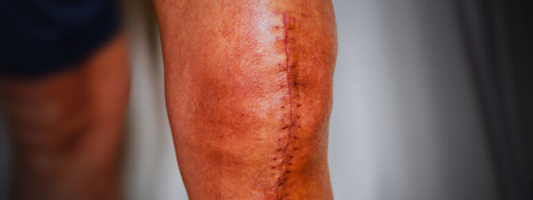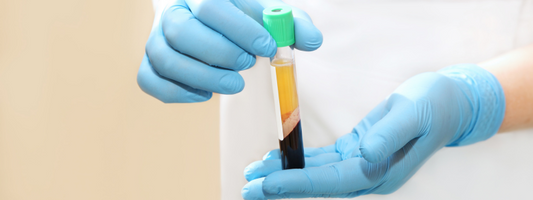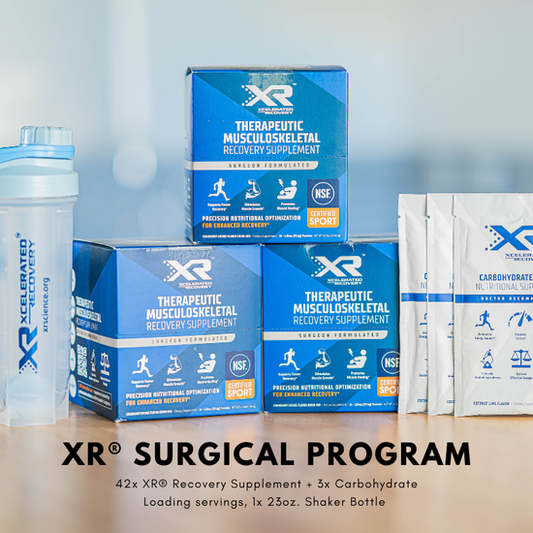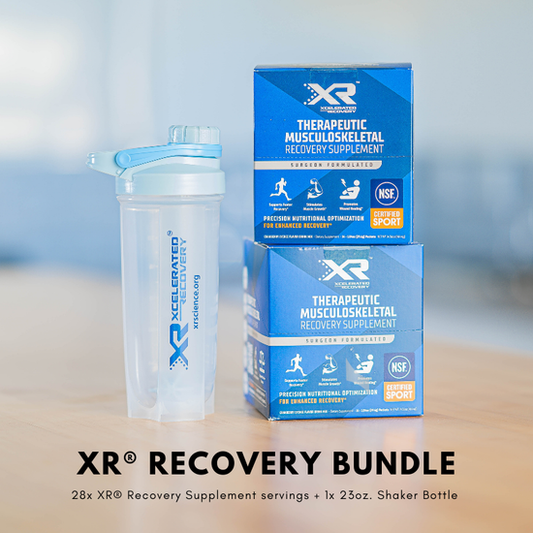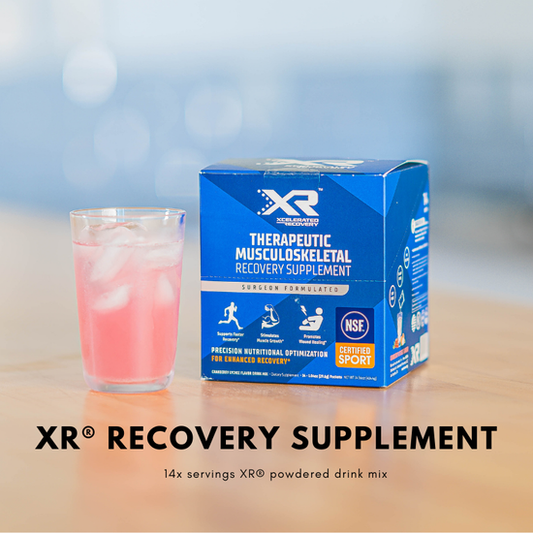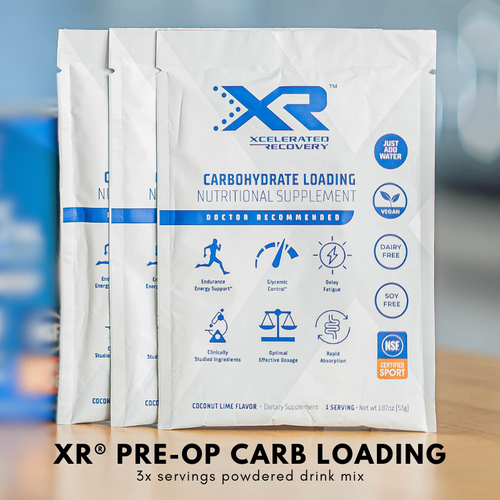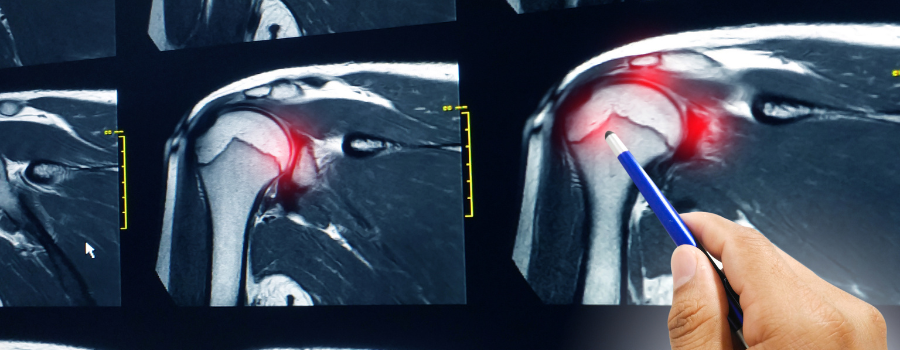
Nutritional Strategies For Optimizing Rotator Cuff Surgery Recovery
Share
Author: Dr. Reza Jazayeri & Dr. Raffy Mirzayan
Rotator cuff surgery is one of the most common orthopedic procedures, with approximately 300,000 surgeries performed each year in the United States, according to the American Academy of Orthopaedic Surgeons. The rate of rotator cuff repair (RCR) is highest in individuals between the ages of 45-74, which is also the age group where both nutritional status and muscle mass tend to decrease.
Studies have also shown that the success rate of rotator cuff repair is highly dependent on the size of the tear, patient's age and activity level, with larger tears and older patients having lower success rates. Factors such as a patient's compliance with rehabilitation, underlying health conditions, nutritional status and the experience of the surgeon performing the procedure also play a role in determining the success of the surgery. Overall, rotator cuff surgery has been shown to be effective in improving pain and function in individuals with rotator cuff tears. However, the recovery process following rotator cuff surgery can be challenging, not only for the patient, but also for the physician.
One of the main concerns during recovery is the risk of re-tears which can occur between 20% to 90% of cases. Studies have shown that those patients whose tendon heals to bone do better, especially when it comes to regaining strength in their shoulder.
This age group is particularly vulnerable to the surgical cascade, as Hirsch et al. (2021) have described as a “cascade of inflammatory, immune, and metabolic responses that result in a hypermetabolic-catabolic state”. This state leads to a significant increase in the demand for amino acids, and in an effort to meet energy demands and promote wound healing, the body breaks down skeletal muscle which is the body's reservoir for amino acids. This muscle breakdown leads to muscle loss (atrophy), which is often seen after surgery and is compounded by the limited activity and immobility that is part of the recovery process. Ultimately, this leads to a significant amount of muscle atrophy that is typically seen after surgery. It's important to take into account that as people age, their nutritional status tends to decline, hence the importance of adequate nutrition before and after surgery which may aid in healing of the repaired tendon to bone.
Nutritional status has been identified to be a strong predictor of surgical outcomes in orthopaedic trauma, total joint arthroplasty, spine as well rotator cuff repair literature. Studies have demonstrated an increase in complications, including infection, increased length of stay, and impaired wound healing in patients with poor nutritional status.
Nutritional Strategies for Enhancing Surgical Outcomes:
Providing proper pre- and post-operative nutrition can help to preserve muscle mass, strength, and functionality, which are critical for recovery following rotator cuff surgery. A study by Hirsch et al. in Nutrients, "Pre- and post-surgical nutrition for preservation of muscle mass, strength, and functionality following orthopedic surgery" highlights the importance of providing adequate nutrition to patients before and after surgery.
Research has shown that a higher protein intake can be beneficial in preventing muscle loss during postoperative immobilization. A study published in the Journal of Athletic Training, "Nutritional considerations and strategies to facilitate injury recovery and rehabilitation" by Abbie E. Smith-Ryan recommends consuming 1.2-2.0 g/kg of protein per day for individuals in recovery or rehabilitation phase.
In addition to protein, it is also important to consume adequate amounts of vitamins and minerals, particularly those that are important for muscle repair and recovery. A randomized controlled trial published in the Journal of Orthopaedic & Sports Physical Therapy in 2012 found that a combination of protein, vitamin C, and zinc supplements taken before and after rotator cuff repair surgery resulted in significantly better clinical outcomes compared to a placebo group.
Another study, published in the Journal of Orthopaedic Trauma, found that malnutrition is a significant risk factor for poor outcomes following rotator cuff surgery. The study, "Malnutrition is a significant risk factor for poor outcomes following rotator cuff repair" suggests that malnutrition can lead to poor wound healing and increased risk of infection.
Even in healthy individuals, the surgical cascade can lead to an increased metabolic demand for nutrients, which can be further exacerbated by pre-existing malnutrition. Therefore, it is important for patients to maintain a balanced diet that is rich in protein, vitamins, and minerals, not only before surgery but also during the recovery period. Patients should also focus on maintaining a healthy weight, as obesity can increase the risk of complications following surgery.
In conclusion, proper nutrition is a crucial aspect of the recovery process following rotator cuff surgery. The surgical cascade, which includes changes in metabolism, immune function, and nutrient utilization, can greatly impact the recovery process. Adequate pre and post-operative nutrition can help to preserve muscle mass, strength, and functionality, which are critical for recovery. Patients should focus on maintaining a balanced diet that is rich in protein, vitamins, and minerals, and also maintain a healthy weight. Nutritional supplements can also be helpful in promoting healing and recovery, but it is important to consult with a healthcare professional before starting any new supplement regimen.
References:
- Hirsch KR, Wolfe RR, Ferrando AA. "Pre- and post-surgical nutrition for preservation of muscle mass, strength, and functionality following orthopedic surgery." Nutrients, 2021;13(5):1675.
- Jang TB, et al. "Hypoalbuminemia is a risk factor for complications after rotator cuff repair." Journal of Shoulder and Elbow Surgery, 2021.
- Sperling AJ, et al. "Malnutrition is a significant risk factor for poor outcomes following rotator cuff repair." Journal of Orthopaedic Trauma, 2020.
- Smith-Ryan AE. "Nutritional considerations and strategies to facilitate injury recovery and rehabilitation." Journal of Athletic Training, 2020;55(2):169-183.
- Johnson JL, et al. "The effects of preoperative supplementation of vitamin C and zinc on rotator cuff repair." Journal of Orthopaedic & Sports Physical Therapy, 2012;42(11):967-974.
- Mirzayan R, Weber AE, Petrigliano FA, Chahla J. Rationale for Biologic Augmentation of Rotator Cuff Repairs. J Am Acad Orthop Surg. 2019;1;27(13):468-478.


